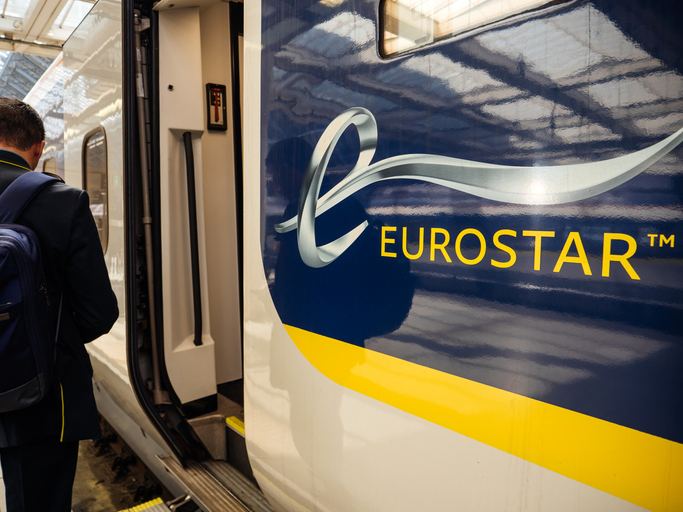Eurostar Ranked Europe’s Worst Rail Service, According to Campaign Group Report
Eurostar, the high-speed rail operator connecting London to Paris, Brussels, and Amsterdam, has been named the worst-performing rail operator in Europe, according to a new report by the campaign group Transport and Environment (T&E). The report, which ranks 27 of Europe’s most prominent rail operators, has stirred controversy and prompted debates about the state of rail travel in the region. The findings also rank Germany’s Deutsche Bahn as one of the least reliable rail services, further raising questions about the overall quality of Europe’s rail network.
This detailed analysis assesses operators on multiple performance criteria, such as ticket prices, punctuality, customer refunds, and overall service quality. It highlights that while rail travel is considered more sustainable than flying or driving, it still struggles with issues such as high costs, low punctuality, and a fragmented booking system. These findings have ignited a larger conversation about how European governments and private companies must address these challenges to make rail travel a viable, reliable, and affordable option for all.
Eurostar’s Disappointing Performance: A Closer Look
Eurostar, which has long been the symbol of high-speed rail travel connecting major European cities, ranked at the bottom of the list in T&E’s report. The survey focused on factors that significantly affect passenger experience, including the reliability of service, affordability, and the willingness of operators to compensate customers for delays. Eurostar was criticized for several key areas: its high ticket prices, poor punctuality, and the absence of an automated refund system for delayed services.
The report revealed that Eurostar’s pricing is nearly double the European average per kilometre for similar routes. This makes Eurostar significantly more expensive than other European rail operators, which raises concerns for price-sensitive consumers. For example, the cost of a ticket for a London to Paris route on Eurostar can exceed the price of a budget airline flight for the same journey. This price disparity, coupled with the inconsistent punctuality of Eurostar services, has led many passengers to seek alternative modes of transport.
In response, Eurostar defended its performance, stating that it had made several improvements to its booking experience and customer service in recent months. A company spokesperson emphasized the fact that the train service had seen record passenger numbers in 2023 and that they were continuing to invest in service upgrades. However, these changes have yet to result in significantly higher customer satisfaction, especially when compared to more competitive services offered by other European operators.
The Transport and Environment Report: Methodology and Findings
The T&E report evaluated rail operators on eight key criteria, with a particular emphasis on customer experience. These criteria included ticket prices, availability of special fares, punctuality, customer service, and compensation policies for delays. Additionally, smaller factors such as the availability of bicycle policies and night train services were included in the report, but these contributed a smaller percentage to the overall score.
One of the most critical findings of the report is that only 11 of the 27 operators analyzed had punctuality rates above 80%. Eurostar performed poorly in this category, with frequent delays plaguing its services. Punctuality is a crucial element for commuters and business travellers who depend on timely arrivals, and the lack of consistency on Eurostar routes has prompted frustration among regular passengers.
Refund policies were another major point of contention in the report. While many rail operators across Europe automatically compensate customers for delays, Eurostar does not offer this convenience. Instead, passengers are required to submit claims for compensation, which can be a time-consuming and confusing process. The report suggests that this additional layer of bureaucracy dissuades passengers from seeking refunds and results in a less satisfying customer experience overall.
Trenitalia and Swiss Rail: The High Performers
Amidst the criticisms of Eurostar, the report highlighted several European operators that delivered strong performance across all categories. Italy’s Trenitalia and Switzerland’s SBB were ranked as the top performers in the study. Trenitalia scored highest with an average of 7.7 out of 10, closely followed by SBB, which boasts some of the most reliable and punctual services in Europe.
Trenitalia’s success is attributed to the intense competition it faces from the private operator Italo, which has helped raise the overall quality of service within Italy’s high-speed rail network. Over the past decade, both Trenitalia and Italo have invested heavily in their services, striving to offer better prices, improved punctuality, and customer-focused amenities to capture the market. This competition has driven both companies to continually improve their offerings, making Trenitalia one of the standout performers in Europe.
Switzerland’s SBB (Swiss Federal Railways) has benefited from the country’s significant investments in its rail infrastructure. SBB's focus on maintaining punctuality and expanding its rail services has helped it earn the highest ratings for reliability and customer satisfaction. Swiss passengers are accustomed to the efficient, comfortable, and punctual services that SBB consistently provides. This success stands in stark contrast to Eurostar’s challenges with punctuality and service consistency.
The Challenges Facing Europe’s Rail Network
While the T&E report has drawn attention to specific operators like Eurostar, it also reflects broader challenges facing Europe’s rail system. One of the most significant issues is the fragmented nature of the European rail network, which complicates cross-border travel. Passengers are often faced with different ticketing systems, pricing structures, and service standards depending on which country they are traveling through. This inconsistency makes it difficult for passengers to book seamless, affordable, and reliable international rail journeys.
The European Commission has recognized this issue and is expected to propose a simplified, unified ticketing system next year, aimed at allowing passengers to purchase a single ticket that ensures their rights are upheld in the event of delays or cancellations. Such reforms would make cross-border rail travel much easier and more attractive to customers, thereby boosting the overall appeal of rail as a sustainable alternative to air travel.
Victor Thévenet, a rail expert at T&E and the lead author of the report, stressed the importance of creating a more cohesive and efficient rail network across Europe. He pointed out that passengers are often discouraged from choosing trains over planes or cars because of high ticket prices and unreliable services. “We need governments to support rail operators and help make travel more affordable and efficient,” said Thévenet.
Related: Labour Begins Rail Revolution: South Western Railway Nationalised
The Environmental Benefits of Rail Travel
Despite the challenges facing the European rail network, there are significant environmental benefits to choosing rail travel over flying or driving. Trains produce far fewer emissions than airplanes or cars, making them a more sustainable travel option. In a world grappling with climate change, rail transport is seen as a key part of the solution to reducing the carbon footprint of the transportation sector.
However, the T&E report highlights that, while rail is an eco-friendly alternative, it is often priced higher than air travel, particularly for short- and medium-haul routes. This pricing gap, combined with inconsistent service, discourages potential customers from choosing trains over planes, which remain the dominant mode of transport for European travel. The report calls for greater government intervention to make train travel more affordable and accessible to a broader range of passengers, particularly families and those on lower incomes.
The Way Forward: Investment, Reform, and Sustainability
To address the issues identified in the T&E report, experts agree that significant investment in rail infrastructure is needed. Governments and private operators must work together to modernize the rail network, improve punctuality, and lower ticket prices. Additionally, a more streamlined and customer-friendly ticketing system across Europe is essential for making rail travel more accessible and efficient.
The need for a greener and more sustainable transport system in Europe is undeniable, and rail travel must play a central role in that transition. However, as the report suggests, operators like Eurostar must significantly improve their services to compete with the more efficient and customer-centric operators found across Europe.
If the European rail network can rise to these challenges, it will not only improve its standing in future rankings but also help accelerate Europe’s shift toward a more sustainable, low-carbon transportation system.











